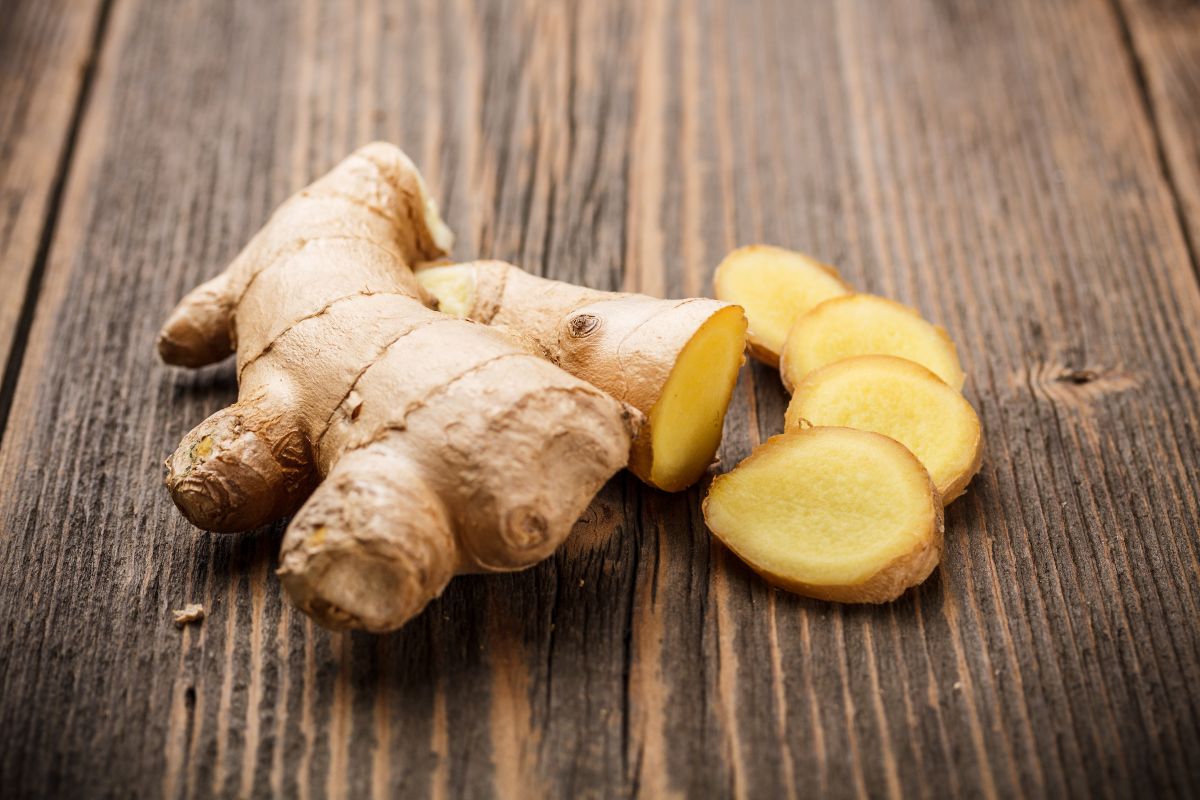After being diagnosed with a fatty liver, you have to put many foods on the list of ones to avoid. But is ginger an ingredient you should stay away from or which, on the contrary, should be consumed more often?
Yes, ginger is considered a safe ingredient if you have fatty liver. Apart from its pleasant taste, scientific research proved that ginger has anti-inflammatory and anti-oxidative capacities, which help in your quest to reverse NAFLD.
Ginger is mostly consumed as a spice and in smaller quantities, but it is widely known to be rich with various useful elements that help our overall health, from lowering blood sugar levels to improving digestion and helping with weight loss.
However, it doesn’t have the regular plethora of vitamins and minerals that we’re used to see (like those in eggplants, for example) and instead it has a unique element, called gingerol.
Fortunately, there are many scientifically proven benefits of gingerol (and therefore the use of ginger as a spice) and we’re going to talk about them below, so that you can learn how can they help you in your quest to reverse fatty liver.
A brief look at ginger
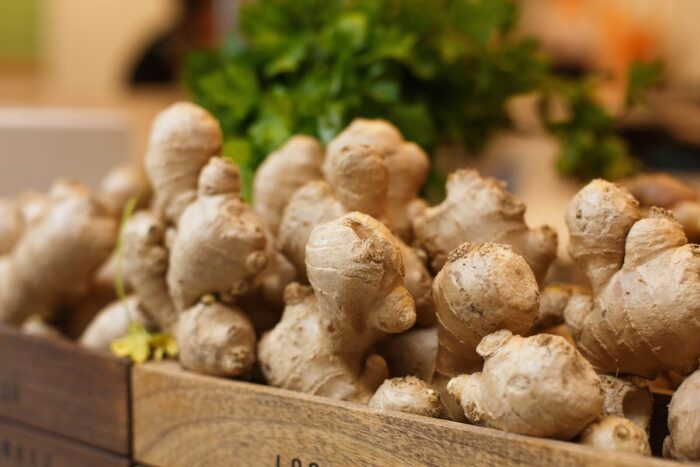
Ginger comes from a plant called Zingiber Officinale, which is widely known in Indian and Chinese food cultures.
They have used it for thousands of years to treat nausea, arthritis, and many inflammatory conditions and now there are studies to back up the claims that it is so beneficial to one’s health.
The studies, which had a closer look into the structure of ginger itself, found that it contains around 400 compounds; some of them are yet to be examined thoroughly.
The main element that is considered to deliver most of the benefits in ginger is the unique gingerol. It helps with digestion, it is believed to have anti-inflammatory capabilities and many other benefits.
Should you consume ginger if you have a fatty liver?
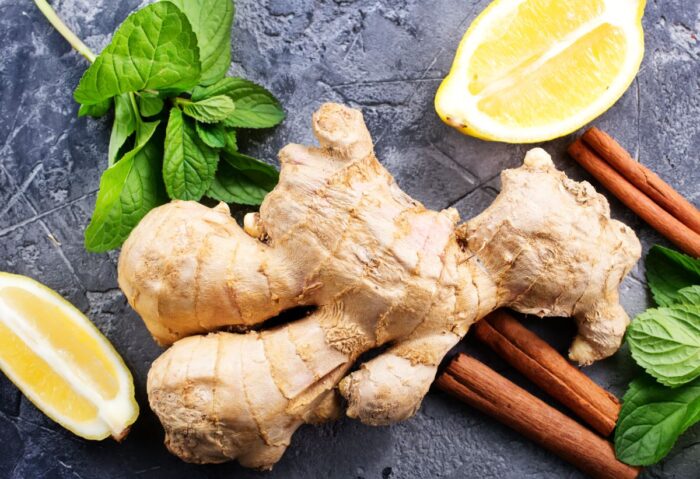
Ginger is not a magic ingredient for fatty liver, but also not one that you should ban. If you enjoy eating ginger, then you can continue to do so.
If not, it’s not really a must to introduce it into your diet, although studies have shown that it wouldn’t hurt.
Ginger has all the properties to oppose inflammatory and oxidative problems that can occur in our bodies. It also helps alleviate nausea, it improves digestion and as a result it might help us to lose weight… and all these are great bonuses if you’re already fighting against NAFLD.
Moreover, ginger has the ability to regulate blood sugar in diabetic patients, who are considered the major risk group to develop NAFLD.
Ginger proved to reduce HbA1C, apolipoproteins and fasting blood sugar, especially in type 2 diabetes. (Study here)
So if you still like to treat yourself to some sushi every now and then, there are no reasons to skip the ginger.
What do studies say?
Many clinical trials and statistical studies have examined the effectiveness of using ginger for fatty liver disease. Let’s go through some of their results.
I won’t go into all the medical stuff and share all the hard-to-understand wording in these studies, but I will share their conclusions and leave a few links for you in case you want to get in-depth.
The obtained results showed the following:
- Ginger and its active components exerted an anti-hyperlipidemic effect by reducing free fatty acids and lowering the incidence of obesity even with high fat diet.
- The lipid build up in liver has decreased, which means reducing the risk of the first hit pathogenesis in NAFLD disease.
- There was a downregulation in the genes responsible for the expression of certain enzymes; these enzymes contribute to the oxidative stress that lead to steatohepatitis.
Check out these sources: 2016 study and this study.
Promising as they look, these studies haven’t established a conclusion over the long-term use of ginger supplements, so in other words, we’re still not 100% sure that ginger is indeed helping (but at least it’s not doing any harm!)
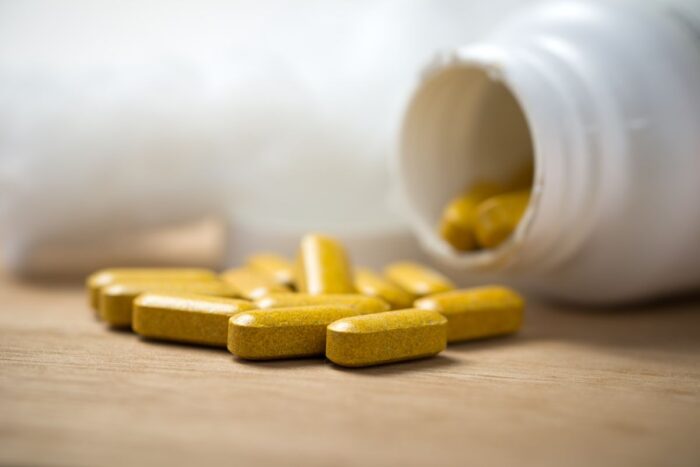
All of these studies have demonstrated the efficacy of ginger as a dietary supplement, not as a management strategy.
Therefore, it’s advisable to consider ginger in your diet for its added benefits in case you’ve been diagnosed with NAFLD disease.
In addition, it’s important to understand that ginger is not a cure for NAFLD, it can only blunt its progression or reduce the severity of the symptoms at best.
You can read about other foods and whether or not you should have them if diagnosed with a fatty liver:
My personal experience with ginger & fatty liver
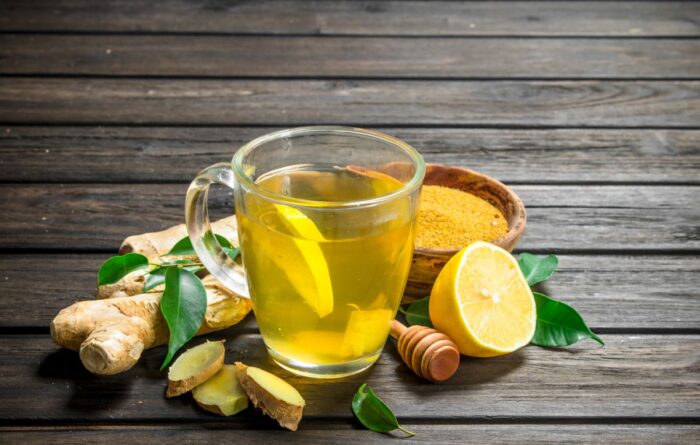
I really enjoy drinking ginger tea, but otherwise, I don’t really use ginger in my diet. Despite all these, I have managed to reverse my fatty liver.
So my personal opinion is that you can definitely get back on track and get healthy again, no matter if you use ginger or not.
Since the studies above offer us palpable scientific reasons to believe that ginger could help battle fatty liver, I would definitely recommend others to introduce them into their diets.
As the worst it can do is no harm at all, there’s no point in not giving it a try. It’s a similar take that I had with milk thistle and even though I can’t be 100% sure it helped me reverse my condition, it didn’t do anything bad either.
So I will personally continue to have my ginger tea every now and then, happy to know that I might be giving my body an extra helping hand to stay healthy.
Conclusion
Ginger is alleged to be good for fatty liver by several mechanisms. This is confirmed by many studies, which found promising results from using ginger for NAFLD.
It has reduced the inflammatory mediators in the liver, as well as helping improve digestion, reduce nausea and even lower blood sugar levels. As a result, ginger can be considered a safe ingredient for those suffering of fatty liver.

I was diagnosed with a fatty liver back in 2014 and managed to reverse it by mid-2015. Since then, I’ve been studying it, continuously updating my knowledge with the latest scientific findings and practical approaches to give others the help they need to reverse their condition.
My approach to managing fatty liver is holistic, balancing scientifically-backed information with real-life, practical advice based on personal, direct experience.
I am also the admin of the Fatty Liver Support Group on Facebook and the Fatty Liver Subreddit.

